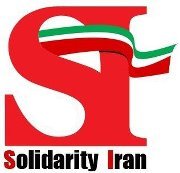Can a “Grand Bargain” be Reached in the New Round of Negotiations between Iran and the 5+1?

On October 15-16, Iran will negotiate in Geneva once again with the countries forming the 5+1 (US, UK, France, Russia, China + Germany).
Are there any changes in the positions of the opposing parties, especially in regards to Iran verses the US and its European allies?
Yes and no! Not in essence and not permanently, but provisionally there are in certain aspects.
In essence, the principal position of the two parties remains the same.
Iran, in line with its right for self-determination and sovereignty, wishes to develop nuclear energy – including uranium enrichment – for peaceful purposes; a right recognized by the UN’s International Atomic Energy Agency (IAEA).
The hegemonic powers headed by the US still wish to keep up pressure on Iran – through sanctions and war threats – to give up its right to live as a free and independent nation.
Changes in Favor of Iran
Meanwhile, there have been certain changes. The US drive to crush the resistance in Syria through direct military intervention was blocked due to a number of decisive factors; not least amongst them the strong stand of Iran. As Mahdi Darius Nazemroaya points out correctly:
“If the Obama Administration did attack Syria, it would have led to a larger confrontation and resulted in American political, economic, diplomatic, strategic, and military losses” (“Was Obama Planning on Striking Syria or Working to Gain Traction in Talks With Iran?” – 30 September 2013).
Today, the same fighting ability of the broader resistance movement in the Middle East that prevented the direct military intervention of the US in Syria should certainly be taken into account – even to a much larger degree – when the US thinks of starting a direct war against Iran. This means that although “all options” against Iran including war are on the US-Israel long term agenda, using such option would be too risky at least at this time. In other words, while the fighting capacity of the US – not in the narrow sense of military technology but in the broader context of human resources and the support of public opinion – has decreased, there has been a growing trend of the same in regard to Iran. This implies changes in the relationship of forces in favor of Iran.
On the other hand, Iran has also recently gone through a noticeable change, reflected not only in the unprecedented telephone call and meeting of its newly elected president and appointed foreign minister with their American counterparts – indicating at the same time a change in the language and gestures of Iranian officials in these so-called negotiations – but a change more importantly evident through strengthened national unity in Iran.
With the participation of almost 73% of the eligible voters in the June 2013 presidential election in Iran, in which candidates from different contending political factions within the Islamic Republic including the “reformists” were present, masses of Iranian people felt the power of their political action. Such mass feeling has boosted the confidence of Islamic Republic in dealing with undue external pressure from the US and its allies.
It is true that the Iranian people are suffering from inhuman sanctions and for that matter the country is pressed to seek ways to come out of the aggravating economic difficulties. However, Iran’s government now has greater leverage to pursue that aim, and that is with the vast support of the masses of Iranian people who despite differences in political views are united in their determination to lift the sanctions.
It should be noted that during the last two months a growing number of NGOs in Iran, representing writers, economists, lawyers and merchants have raised their voices against the sanctions. This is the first time that such broad actions have been initiated since the imposition of sanctions on Iran. It is interesting that some of these actions have been initiated by reformist currents which until recently were completely silent on about this important cause.
Iran Can Gain
Based on the above-mentioned changing situation and thanks to the confidence built up during 35 of years of resistance against imperialist aggressions, there is a chance for Iran in the period ahead to gain its right to develop nuclear energy for peaceful purposes without compromising its principled stands. As Abbas Araqchi a top Iranian nuclear negotiator said ahead of new negotiations, Iran will not surrender ‘one iota’ of its right to enrich uranium. While preserving this right, Iran’s main demand is that all sanctions should be immediately lifted. Such a demand, which is supported by the more than 70 million of citizens of Iran, deserves the support of freedom lovers and activists all over the world in the peace movement, especially in the US.
It seems that new developments are surfacing in the difficult relationship between the US and Iran. As Nazemroaya further mentions in his above-quoted article: “…the Obama Administration seems to be edging towards a grand bargain and diplomatic breakthrough with Iran in what could possibly be compared to Richard Nixon’s reestablished of ties with the People’s Republic of China or a new ‘Nixon-Mao moment’”.
The unity of the Iranian people and an international campaign in solidarity with Iran are the two indispensable factors that could jointly safeguard Iran’s position in such a “grand bargain”.
Abdolhamid Shahrabi is the Co-founder and Coordinator of the Solidarity with Iran (SI) campaign.

